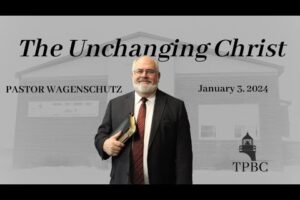Prevailing prayer is that which secures an answer. Saying prayers is not offering prevailing prayer. I do not know how better to approach this subject than by relating a fact of my own experience before I was converted.
I do not recollect to have ever attended a prayer-meeting until after I began the study of law. Then, for the first time, I lived in a neighborhood where there was a prayer-meeting weekly. I had neither known, heard, nor seen much of religion; hence I had no settled opinions about it. Partly from curiosity and partly from an uneasiness of mind upon the subject, which I could not well define, I began to attend that prayer-meeting. About the same time I bought the first Bible that I ever owned, and began to read it. I listened to the prayers which I heard offered in those prayer-meetings, with all the attention that I could give to prayers so cold and formal. In every prayer they prayed for the gift and outpouring of the Holy Spirit. Both in their prayers and in their remarks, which were occasionally interspersed, they acknowledged that they did not prevail with God. This was most evident, and had almost made me a skeptic.
Seeing me so frequently in their prayer-meeting, the leader, on one occasion, asked me if I did not wish them to pray for me. I replied: “No.” I said: “I suppose that I need to be prayed for, but your prayers are not answered. You confess it yourselves.” I then expressed my astonishment at this fact, in view of what the Bible said about the prevalence of prayer. Indeed, for some time my mind was much perplexed and in doubt in view of Christ’s teaching on the subject of prayer and the manifest facts before me, from week to week, in this prayer-meeting. Did prayer really avail to secure blessings from God? If so, what was I to make of what I witnessed from week to week and month to month in that prayer-meeting? Were they real Christians? Was that which I heard real prayer, in the Bible sense? Was it such prayer as Christ had promised to answer? Here I found the solution.
I became convinced that they were under a delusion; that they did not prevail because they had no right to prevail. They did not comply with the conditions upon which God had promised to hear prayer. Their prayers were just such as God had promised not to answer. That they were overlooking the fact that they were in danger of praying themselves into skepticism in regard to the value of prayer, was evident.


